
Find A Professional
More Items From Ergsy search
-

What is the difference between Aspirin, Paracetamol, and Ibuprofen?
Relevance: 100%
-

Can I take Aspirin and Ibuprofen together?
Relevance: 84%
-

Which one is better for headaches: Aspirin or Paracetamol?
Relevance: 81%
-

Is Paracetamol the same as Aspirin?
Relevance: 78%
-

Is it safe to take Paracetamol with Ibuprofen?
Relevance: 77%
-

Which one is better for toothache: Ibuprofen or Paracetamol?
Relevance: 76%
-
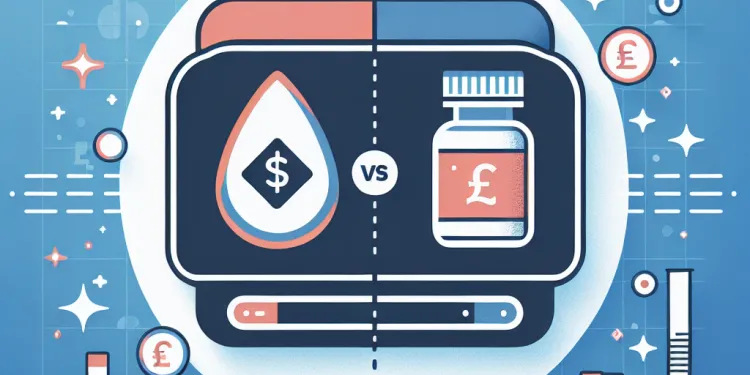
Are Aspirin and Ibuprofen the same?
Relevance: 76%
-

Can I take ibuprofen and paracetamol together? - Common Health Questions | NHS
Relevance: 72%
-

What is Aspirin?
Relevance: 69%
-
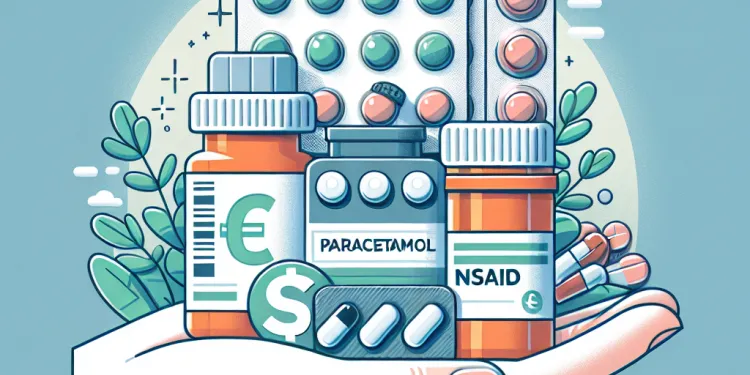
Why might someone choose Paracetamol over NSAIDs?
Relevance: 68%
-

Does Paracetamol reduce inflammation?
Relevance: 66%
-
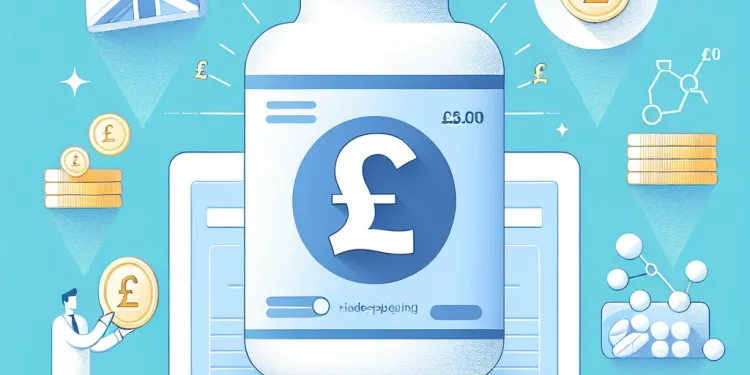
What are the side effects of Aspirin?
Relevance: 66%
-

What is Paracetamol?
Relevance: 65%
-

What is Paracetamol?
Relevance: 59%
-

What is Ibuprofen?
Relevance: 59%
-

Can I use Ibuprofen for menstrual pain?
Relevance: 58%
-

What are the side effects of Ibuprofen?
Relevance: 55%
-

Can Paracetamol be used in pregnant women?
Relevance: 54%
-

Can Ibuprofen be used to reduce inflammation?
Relevance: 52%
-

What are the side effects of Paracetamol?
Relevance: 45%
-
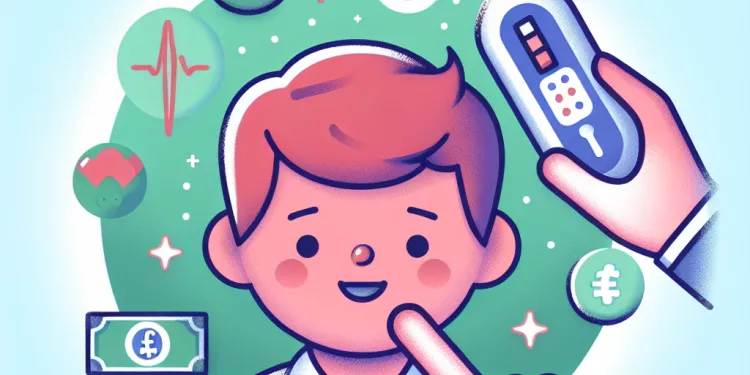
Which medication should be avoided for children with fevers?
Relevance: 41%
-
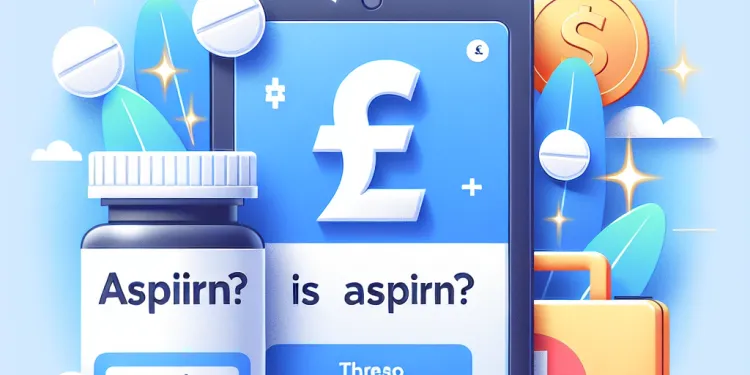
What is Aspirin?
Relevance: 28%
-

How to deal with period pain | NHS
Relevance: 12%
-

How to treat earache | NHS
Relevance: 10%
-

Self care: Treating ear infections
Relevance: 9%
-

Advice if your child has... A High temperature
Relevance: 9%
-

How to treat an insect bite or sting | NHS
Relevance: 8%
-

How to deal with period pain | NHS
Relevance: 8%
-

How to deal with period pain | NHS
Relevance: 7%
-

Caring for a child with fever | NHS
Relevance: 7%
-

How to treat a sprained ankle
Relevance: 6%
-

How to Keep a Child With Chickenpox Comfortable
Relevance: 6%
-

GP Nursing Most Common Medications UK.
Relevance: 6%
-

What precautions should I take before getting Botox?
Relevance: 6%
-

Migraine | NHS
Relevance: 6%
-

Is a womb lining test painful?
Relevance: 6%
-

What should someone from the UK do if they think they have Zika virus after traveling?
Relevance: 6%
-

Are there different types of asthma?
Relevance: 6%
-

Treating breast pain | United Lincolnshire Hospitals NHS Trust
Relevance: 5%
-

How do I treat my child's cold? (9 - 30 months) | NHS
Relevance: 5%
Aspirin
Aspirin, also known as acetylsalicylic acid, is a non-steroidal anti-inflammatory drug (NSAID). It is commonly used to relieve pain, reduce inflammation, and lower fever. Additionally, aspirin is known for its antiplatelet effect, meaning it reduces the stickiness of platelets, thereby lowering the risk of blood clots. This property makes it useful for preventing heart attacks and strokes in certain individuals. However, aspirin is not suitable for everyone. It can cause stomach irritation and increase the risk of bleeding, particularly in individuals with conditions such as peptic ulcers or those who are taking blood-thinning medications. Aspirin should be avoided in children under 16 years due to the risk of Reye's syndrome, a rare but serious condition.
Paracetamol
Paracetamol, known as acetaminophen in some countries, is widely used as a pain reliever and fever reducer. Unlike aspirin and ibuprofen, paracetamol is not classified as an NSAID and does not have significant anti-inflammatory properties. It is often used for mild to moderate pain relief, such as headaches, toothaches, and the symptoms of colds and flu. Paracetamol is generally considered safe when used correctly, but it is important to adhere to the recommended dosages. Overdose of paracetamol can lead to serious liver damage. It is a suitable option for those who cannot take NSAIDs due to gastrointestinal issues or allergies.
Ibuprofen
Ibuprofen, like aspirin, is a member of the NSAID family. It is used to relieve pain, reduce inflammation, and lower fever. Common uses of ibuprofen include treating headaches, muscle aches, arthritis, menstrual pain, and minor injuries. Ibuprofen is generally well-tolerated, but as with other NSAIDs, it can cause stomach irritation or ulcers with long-term use. It is important for individuals with heart, kidney, or gastrointestinal issues to consult a doctor before using ibuprofen. Unlike aspirin, ibuprofen does not have significant antiplatelet effects and is considered safer for children, although proper dosing is essential.
Conclusion
In summary, while aspirin, paracetamol, and ibuprofen all serve as effective pain relievers, they differ in their other properties and potential side effects. Aspirin is unique for its blood-thinning effects but is not advisable for children or people with certain health conditions. Paracetamol is a safer choice for those seeking pain relief without an anti-inflammatory effect, being easy on the stomach compared to NSAIDs. Ibuprofen provides both pain relief and anti-inflammatory benefits, suitable for many but requiring caution for people with specific health concerns. Selecting the right medication depends on the individual's health needs, existing medical conditions, and the type of pain being treated.
Aspirin
Aspirin is a medicine that helps with pain, swelling, and fever. It can also help stop blood clots, which is good for preventing heart problems and strokes. But, it can upset your stomach and is not for everyone. Children under 16 should not take aspirin because it can cause a serious illness called Reye's syndrome.
Paracetamol
Paracetamol helps with pain and fever but not swelling. It is often used for headaches, toothaches, and colds. It is safe if you take the right amount. Taking too much can harm your liver. Paracetamol is a good choice if you cannot take other pain medicines due to stomach issues or allergies.
Ibuprofen
Ibuprofen helps with pain, swelling, and fever. You can use it for headaches, sore muscles, arthritis, and more. It can upset the stomach if taken for a long time. People with heart, kidney, or stomach problems should talk to a doctor first. Ibuprofen is safer for children than aspirin, but the right amount is important.
Conclusion
In short, aspirin, paracetamol, and ibuprofen are all helpful for pain, but they work differently. Aspirin can thin the blood, but children should not take it. Paracetamol is gentle on the stomach. Ibuprofen helps with swelling. Picking the right one depends on your health and the kind of pain you have. Always be careful with the amount you take.
Tip: You can use a pill organizer to remember when to take your medicine. Also, ask a doctor or pharmacist if you are not sure which one to choose.
Frequently Asked Questions
What is Aspirin?
Aspirin is a nonsteroidal anti-inflammatory drug (NSAID) used to reduce pain, fever, and inflammation. It also has antiplatelet properties, which means it can help prevent blood clots.
What is Paracetamol?
Paracetamol, also known as acetaminophen, is a medication used to treat pain and fever. It is not an NSAID and does not have anti-inflammatory properties.
What is Ibuprofen?
Ibuprofen is a nonsteroidal anti-inflammatory drug (NSAID) used to relieve pain, reduce fever, and decrease inflammation.
Are Aspirin and Ibuprofen the same?
No, Aspirin and Ibuprofen are different medications, although both are NSAIDs. They have similar effects but different chemical structures and can have different side effects.
Is Paracetamol the same as Aspirin?
No, Paracetamol (acetaminophen) is not the same as Aspirin. Paracetamol does not have anti-inflammatory properties, whereas Aspirin does.
Can Ibuprofen be used to reduce inflammation?
Yes, Ibuprofen is an NSAID and is effective in reducing inflammation, as well as treating pain and fever.
Does Paracetamol reduce inflammation?
No, Paracetamol does not have anti-inflammatory properties. It is used primarily to reduce pain and fever.
Which one is better for headaches: Aspirin or Paracetamol?
Both Aspirin and Paracetamol can be effective for headaches, but Paracetamol is often preferred due to its milder side effect profile, especially for those with stomach sensitivity.
Can I take Aspirin and Ibuprofen together?
It is generally not recommended to take Aspirin and Ibuprofen together because they can increase the risk of gastrointestinal bleeding and reduce the efficacy of the drugs.
Which one has a blood-thinning effect?
Aspirin has a blood-thinning effect due to its antiplatelet properties, whereas Paracetamol and Ibuprofen do not.
What are the side effects of Aspirin?
Common side effects of Aspirin include stomach upset, heartburn, drowsiness, and increased bleeding risk.
What are the side effects of Paracetamol?
Paracetamol is generally well-tolerated, but high doses can lead to liver damage. Other side effects are rare.
What are the side effects of Ibuprofen?
Ibuprofen can cause stomach upset, dizziness, high blood pressure, and increased risk of gastrointestinal bleeding.
Is it safe to take Paracetamol with Ibuprofen?
Yes, Paracetamol and Ibuprofen can be taken together or alternated, as they work in different ways and do not interact negatively with each other.
Which medication should be avoided for children with fevers?
Aspirin should be avoided in children with fevers due to the risk of Reye's syndrome, a rare but serious condition.
Can I use Ibuprofen for menstrual pain?
Yes, Ibuprofen is effective for reducing menstrual pain due to its anti-inflammatory properties.
Which one is better for toothache: Ibuprofen or Paracetamol?
Ibuprofen is generally preferred for toothache due to its anti-inflammatory properties, which help reduce swelling.
Why might someone choose Paracetamol over NSAIDs?
Paracetamol may be chosen over NSAIDs like Aspirin and Ibuprofen for individuals with stomach sensitivities, ulcers, or bleeding disorders.
Can Paracetamol be used in pregnant women?
Paracetamol is generally considered safe for use during pregnancy, whereas NSAIDs like Aspirin and Ibuprofen should be avoided, especially in the third trimester.
How do NSAIDs work to reduce pain?
NSAIDs work by inhibiting enzymes (COX-1 and COX-2) involved in the production of prostaglandins, chemicals that promote inflammation, pain, and fever.
What is Aspirin?
Aspirin is a kind of medicine. People take it to help with pain, like a headache. It can also help if you have a fever.
If you need help reading, ask someone to read with you. You can also use an app to read the words out loud.
Aspirin is a type of medicine. It helps to stop pain, bring down fever, and reduce swelling. It also helps to stop blood clots, which are like sticky lumps in your blood. This is important because blood clots can cause problems.
What is Paracetamol?
Paracetamol is a type of medicine that helps when you have a headache or a fever. It can make your pain go away. You can buy it in a store or get it from a doctor.
If you need help understanding, you can:
- Ask someone to read the label with you.
- Use pictures to help you know when to take it.
- Talk to a pharmacist if you have questions.
Paracetamol, which some people call acetaminophen, is a medicine. It helps when you have pain or a fever. It is different from NSAIDs because it doesn't help with swelling.
What is Ibuprofen?
Ibuprofen is a type of medicine. It helps you feel better if you have pain or a high temperature (fever). You can take it for headaches, toothaches, or when you're feeling sore.
If you are not sure how to take it, ask a grown-up to help you. You can also talk to a doctor or a pharmacist. They can give you advice.
If reading is hard, try listening to the information. You could ask someone to read it to you or use a text-to-speech app. Remember, it is always okay to ask questions if you don't understand something.
Ibuprofen is a medicine. It helps with pain, lowers a fever, and makes swelling go down.
Is Aspirin the Same as Ibuprofen?
Aspirin and Ibuprofen are both pain medicines. But they are not the same. They work in different ways.
Do they help the same way?
Both can help with pain and fever. But they are still different. Ask a doctor which is best for you.
Can kids take them?
Always check with a doctor before giving medicine to kids. Some medicines are not good for children.
Need more help?
If confused, ask a doctor or pharmacist. They can help you choose the right medicine. Using pill boxes or reminder alarms can also help you remember when to take medicine.
No, Aspirin and Ibuprofen are not the same. They are both medicines called NSAIDs, but they are different. They work in similar ways, but they are not made the same. They can also cause different side effects.
Are Paracetamol and Aspirin the same?
No, Paracetamol (also called acetaminophen) is not the same as Aspirin. Paracetamol does not help with swelling, but Aspirin does.
Can Ibuprofen help with swelling?
Ibuprofen is a medicine. It can help with swelling and pain. Swelling is when a part of your body gets bigger and hurts.
How to use Ibuprofen:
- Follow what the doctor says.
- Check the label for how much to take.
- If you don’t understand, ask an adult.
Tools to help you understand:
- Ask a family member or friend for help.
- Use pictures or videos to learn more.
- Talk to your doctor or nurse.
Always ask an adult if you have questions. They can help make sure you use medicines safely.
Yes, Ibuprofen is a type of medicine. It helps calm down swelling, and it also helps with pain and fever.
Does Paracetamol Help with Swelling?
Paracetamol is a medicine that helps with pain and fever.
But, it does not help with swelling or inflammation.
If you want to reduce swelling, you might need a different medicine.
Here are some tips to understand medicine:
- Ask a doctor or nurse if you are not sure.
- Look at the medicine label for what it helps with.
- Use pictures or symbols to help remember.
No, Paracetamol does not help with swelling. It is used mainly to make pain and fever go away.
Which is better for headaches: Aspirin or Paracetamol?
Do you have a headache? You might wonder if Aspirin or Paracetamol is better.
Here are some things to think about:
- Aspirin: It helps with pain and swelling. Some people might not be able to take it, like kids or people with tummy problems.
- Paracetamol: It helps with pain and fever. It is gentle on the tummy but only works on pain, not swelling.
Remember to:
- Ask an adult, like a parent or doctor, if you are not sure.
- Use a timer or clock to know when to take medicine.
- Read the label on the medicine box for instructions.
Aspirin and Paracetamol can both help with headaches. But many people like to use Paracetamol. This is because Paracetamol is less likely to upset your stomach.
Can I take Aspirin and Ibuprofen together?
It's best to ask a doctor before taking Aspirin and Ibuprofen at the same time.
Sometimes these medicines can cause problems if taken together.
Tip: Use an app or timer to remind you when to take your medicine.
It is not a good idea to take Aspirin and Ibuprofen at the same time. They can cause stomach bleeding and make each other work less well.
Which one makes your blood thinner?
Aspirin can make your blood thinner. This is because it stops tiny parts of your blood, called platelets, from sticking together. Paracetamol and Ibuprofen do not do this.
What happens if Aspirin makes you feel unwell?
Aspirin can sometimes make your stomach feel upset or give you heartburn. It might make you feel sleepy too. Also, it can make it easier for you to bleed.
What can happen if you take Paracetamol?
Paracetamol is a medicine that helps if you feel sick.
Sometimes, medicines can have side effects.
Side effects are things that happen after you take the medicine.
If you take Paracetamol, you might feel:
- Sick in your tummy (nausea)
- Feel sleepy or dizzy
- Get a rash on your skin
If you don't feel well after taking Paracetamol, tell an adult you trust.
They can help you talk to a doctor if needed.
If you use a magnifier or read-aloud tool, it can help make reading easier.
Paracetamol is usually safe for most people to take. But taking too much can hurt your liver. Other side effects do not happen often.
What can happen if you take Ibuprofen?
When you take a medicine like Ibuprofen, it can sometimes make you feel not so good. Here are some things that might happen:
- Your tummy might hurt.
- You might feel like you're going to throw up.
- Your head might hurt or feel funny.
- Your mouth might feel dry.
If you feel very unwell or something happens that you didn’t expect, tell a grown-up or a doctor.
It helps to talk to someone if you feel worried. They can help you understand what is happening.
Ibuprofen can make your stomach hurt. It can also make you feel dizzy. It might make your blood pressure go up, and it can cause bleeding in your stomach.
Can I take Paracetamol with Ibuprofen safely?
Paracetamol and Ibuprofen are both medicines.
They help when you are in pain or have a fever.
You can take both, but don’t take too much.
It is important to follow the doctor’s advice.
Ask an adult if you are unsure.
If you need help, you can use tools like pictures or ask someone to read it with you.
Remember to check the labels on the medicine.
Yes, you can take Paracetamol and Ibuprofen together. You can also take them one after the other. They help your body in different ways and are safe to use together.
To help remember when to take the medicine, you can use a pill organizer or set reminders on your phone.
What medicine should kids with fevers not take?
Children with a fever should not take aspirin. It can make them very sick with a problem called Reye's syndrome, which is rare but serious.
Can I take Ibuprofen for period pain?
Some people have pain when they get their period. This is called period pain.
Ibuprofen is a medicine that can help with pain.
You can take Ibuprofen to help with period pain. But it's important to follow the advice on the packet or talk to a doctor.
Here are some things you can do to feel better:
- Use a warm water bottle on your tummy.
- Rest and relax.
- Ask an adult to help you with medicine.
If the pain does not get better, talk to a doctor.
Yes, Ibuprofen can help with period pain. It works because it reduces swelling and pain in the body.
Which medicine is better for toothache: Ibuprofen or Paracetamol?
If your tooth hurts, you might wonder which medicine to take. Should you use Ibuprofen or Paracetamol? Both can help with pain. Let's find out which one is better for a toothache.
Here are some things to think about:
- Ibuprofen can help reduce swelling and pain.
- Paracetamol helps with pain, but not with swelling.
It might be a good idea to ask a grown-up or a doctor before you choose. They can help you decide which medicine is best for you.
If you find reading hard, try these tips:
- Read slowly and take your time.
- Point to the words with your finger as you read.
- Talk about it with someone who can help you understand.
Ibuprofen is often better for toothache because it helps with swelling and pain.
Why do people take Paracetamol instead of other pain pills?
People might take Paracetamol because it is gentle on the stomach. It helps with pain and fever. It does not make the tummy feel bad.
Other pain pills, called NSAIDs, can hurt the tummy. They might cause problems like a sore tummy or heartburn.
To stay safe, always ask a doctor or nurse if you have questions about medicine.
Using tools like pictures or videos can help you learn more about these medicines.
Paracetamol is a type of medicine. Some people take it because other medicines, like Aspirin and Ibuprofen, can hurt their stomach. It is better if they have a sore stomach, ulcers, or problems where their tummy might bleed.
Is it okay for pregnant women to take paracetamol?
Paracetamol is a medicine. If you are pregnant and need medicine for pain or fever, talk to your doctor. Your doctor knows what is safe for you and your baby.
It's important to follow your doctor's advice. They can help you feel better safely.
It is safe to take paracetamol when you are pregnant. But, do not take medicines like Aspirin and Ibuprofen, especially in the last months of pregnancy.
How do NSAIDs help with pain?
NSAIDs are medicines that help stop pain. They work by blocking some chemicals in the body that cause pain and swelling. This helps you feel better.
Here are some tips to help understand how they work:
- Think of NSAIDs as pain blockers.
- They stop the signals that say "ouch" in your body.
If you need help understanding this, you can:
- Ask a grown-up to explain it to you.
- Use simple videos or books about pain medicines.
NSAIDs are medicines that help stop pain and swelling. They do this by blocking certain chemicals in the body that cause pain and fever.
Useful Links
- Ergsy carfully checks the information in the videos we provide here.
- Videos shown by Youtube after a video has completed, have NOT been reviewed by ERGSY.
- To view, click the arrow in centre of video.
- Most of the videos you find here will have subtitles and/or closed captions available.
- You may need to turn these on, and choose your preferred language.
- Go to the video you'd like to watch.
- If closed captions (CC) are available, settings will be visible on the bottom right of the video player.
- To turn on Captions, click settings .
- To turn off Captions, click settings again.
More Items From Ergsy search
-

What is the difference between Aspirin, Paracetamol, and Ibuprofen?
Relevance: 100%
-

Can I take Aspirin and Ibuprofen together?
Relevance: 84%
-

Which one is better for headaches: Aspirin or Paracetamol?
Relevance: 81%
-

Is Paracetamol the same as Aspirin?
Relevance: 78%
-

Is it safe to take Paracetamol with Ibuprofen?
Relevance: 77%
-

Which one is better for toothache: Ibuprofen or Paracetamol?
Relevance: 76%
-

Are Aspirin and Ibuprofen the same?
Relevance: 76%
-

Can I take ibuprofen and paracetamol together? - Common Health Questions | NHS
Relevance: 72%
-

What is Aspirin?
Relevance: 69%
-

Why might someone choose Paracetamol over NSAIDs?
Relevance: 68%
-

Does Paracetamol reduce inflammation?
Relevance: 66%
-

What are the side effects of Aspirin?
Relevance: 66%
-

What is Paracetamol?
Relevance: 65%
-

What is Paracetamol?
Relevance: 59%
-

What is Ibuprofen?
Relevance: 59%
-

Can I use Ibuprofen for menstrual pain?
Relevance: 58%
-

What are the side effects of Ibuprofen?
Relevance: 55%
-

Can Paracetamol be used in pregnant women?
Relevance: 54%
-

Can Ibuprofen be used to reduce inflammation?
Relevance: 52%
-

What are the side effects of Paracetamol?
Relevance: 45%
-

Which medication should be avoided for children with fevers?
Relevance: 41%
-

What is Aspirin?
Relevance: 28%
-

How to deal with period pain | NHS
Relevance: 12%
-

How to treat earache | NHS
Relevance: 10%
-

Self care: Treating ear infections
Relevance: 9%
-

Advice if your child has... A High temperature
Relevance: 9%
-

How to treat an insect bite or sting | NHS
Relevance: 8%
-

How to deal with period pain | NHS
Relevance: 8%
-

How to deal with period pain | NHS
Relevance: 7%
-

Caring for a child with fever | NHS
Relevance: 7%
-

How to treat a sprained ankle
Relevance: 6%
-

How to Keep a Child With Chickenpox Comfortable
Relevance: 6%
-

GP Nursing Most Common Medications UK.
Relevance: 6%
-

What precautions should I take before getting Botox?
Relevance: 6%
-

Migraine | NHS
Relevance: 6%
-

Is a womb lining test painful?
Relevance: 6%
-

What should someone from the UK do if they think they have Zika virus after traveling?
Relevance: 6%
-

Are there different types of asthma?
Relevance: 6%
-

Treating breast pain | United Lincolnshire Hospitals NHS Trust
Relevance: 5%
-

How do I treat my child's cold? (9 - 30 months) | NHS
Relevance: 5%